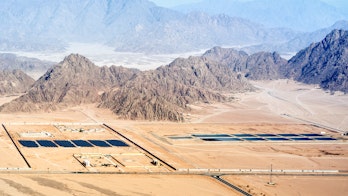
Africa
Energy system of Africa
Africa – which will be home to one-fifth of the world’s population by 2030 – is set to play an increasingly important role in the global energy ecosystem. Across the region, demand for energy is growing, but modern energy use per capita remains among the lowest in the world, despite ample energy resources across the continent. Africa accounts for just 6% of global energy use and less than 3% of global energy-related carbon dioxide (CO2) emissions.
Boosting access to secure and sustainable energy in Africa remains essential. More than 600 million people on the continent currently live without access to electricity – and nearly 1 billion do not have access to clean cooking supplies.
Supporting these ambitions will require a step-change in financing, including from the international community and the private sector. To achieve Africa’s development goals, as well as energy access and climate objectives, energy spending on the continent needs to more than double by 2030, with more than two-thirds going to clean energy.
Angola
Benin
Botswana
Burkina Faso
Burundi
Cabo Verde
Cameroon
Central African Republic
Chad
Comoros
Congo
Cote D’Ivoire
Democratic Republic of the Congo
Djibouti
Egypt
Equatorial Guinea
Eritrea
Eswatini
Ethiopia
Gabon
Gambia
Ghana
Guinea
Guinea-Bissau
Kenya
Lesotho
Liberia
Libya
Madagascar
Malawi
Mali
Mauritania
Mauritius
Morocco
Mozambique
Namibia
Niger
Nigeria
Rwanda
Sao Tome and Principe
Senegal
Seychelles
Sierra Leone
Somalia
South Africa
South Sudan
Sudan
Tanzania
Togo
Tunisia
Uganda
Zambia
Zimbabwe
Policies
Explore policy database by topic
Africa Energy Outlook 2022
The Africa Energy Outlook 2022 is a new special report from the International Energy Agency’s World Energy Outlook series. It explores pathways for Africa’s energy system to evolve toward achieving all African development goals, including universal access to modern and affordable energy services by 2030 and nationally determined contributions.
